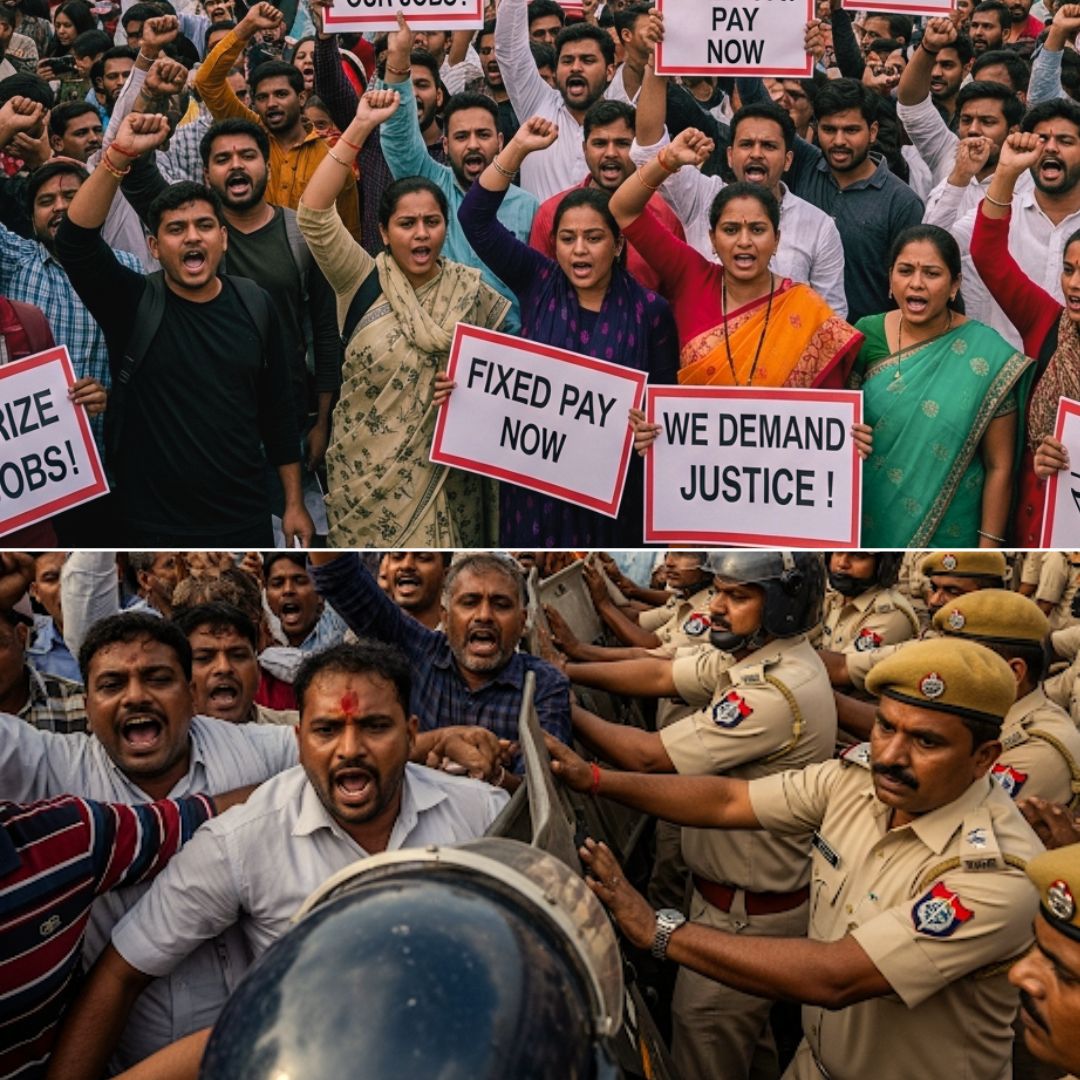On August 22, 2025, thousands of ration dealers in Patna took to the streets demanding a significant increase in their monthly honorarium to Rs 30,000, along with job regularisation and protection of their rights.
The protest escalated into a confrontation with police at the Dak Bunglow intersection, where baton charges and water cannons were deployed to disperse the crowd.
Police claimed protesters resorted to stone pelting, while dealers alleged excessive force. Several protesters were detained, and the disruption caused considerable traffic chaos in the city center.
Protesters Demand Fair Treatment and Livelihood Security
The demonstrators, organised by the Fair Price Dealers Association, voiced frustration over years of unaddressed demands. Their core plea is for a monthly honorarium that reflects the rising cost of living and operational expenses, which currently leave many dealers struggling financially.
Alongside monetary demands, they seek job regularisation to ensure formal recognition and job security. Many dealers stressed the essential role they play in distributing subsidised food to the poor under government schemes but feel neglected and undervalued.
Escalation at Dak Bunglow: Police Response and Protester Clashes
Tensions peaked when the protest march reached Dak Bunglow, a sensitive intersection in Patna. Despite police orders to remain at a designated site in Gardnibagh, the crowd blocked major roads, impeding traffic and disrupting public order.
Police officer DSP Krishna Murari Prasad confirmed that after repeated warnings, they resorted to baton charges and water cannons when protesters became violent by breaking barricades and throwing stones. The police maintain their action was necessary to restore law and order, whereas protestors accused the force of excessive brutality.
Video footage shared on social media depicted chaotic scenes of clashes, with some arrest reports confirming a dozen detained so far.
Background: Chronic Neglect of Ration Dealers’ Role and Rights
Ration dealers in Bihar have long faced economic hardships, with stagnant honorariums not keeping pace with inflation or work demands. Despite being vital for ensuring food reaches economically vulnerable households, many remain in precarious jobs without formal benefits or protections.
Over the past year, protests have grown in frequency and intensity, reflecting mounting dissatisfaction and a widening gap between dealers’ expectations and government action. Analysts argue that securing fair remuneration and formalisation is crucial to preventing future unrest and sustaining a functional public distribution network critical to social welfare.
The Logical Indian’s Perspective
While the right to protest is fundamental in a democracy, resorting to violence benefits no one and only disrupts civic life. The government must urgently engage with ration dealers in honest dialogue, recognising their indispensable contribution to society and the precarious conditions many endure. Equally, protest leaders bear the responsibility to maintain non-violent demonstrations to preserve the legitimacy of their cause and public support.
The Logical Indian advocates for peaceful negotiation built on mutual respect and empathy to forge lasting solutions that uphold dignity, social justice, and public welfare. How do you think both sides can move towards constructive talks that respect rights and restore harmony in the community?
Patna, Bihar: Police used water cannons to disperse Public Distribution System (PDS) dealers marching to demand protection of the system. Thousands of dealers had gathered at Patna’s Gandhi Maidan, pressing for job regularization and fixed pay, while also calling for safeguarding… pic.twitter.com/JvUKMTX00R
— IANS (@ians_india) August 22, 2025












